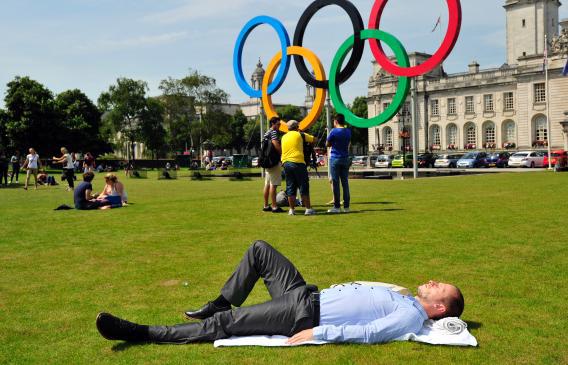This question originally appeared on Quora.
Answer by Kelly Erickson, small business experience designer:
Sleep research! Keeping a close eye on this is one of my favorite little hobbies!
First: Seven to nine hours for an adult is considered the correct amount of sleep for most people. Though lots of folks think they function “fine” on less, they’d mainly function way *better* on more.
Scientists have found a gene that seems to allow some of us to get as much sleep as we need in as little time as six hours. But only 3 percent of us have that gene. Most likely, you’re in the other 97 percent. And if you’re getting less than six hours, you are building up a big “sleep debt” in your body even if you have got the gene.
Research has shown that we’re not just tired and crankier when we’re sleep-deprived, we’re also worse on cognitive tasks (reasoning, memory, etc.) and (surprisingly) less strong in physical tasks as well. So it’s well worth figuring out what you need, at any given age (changes over time are normal) and making sure you consistently get that sleep, 7 days a week.
To determine your personal needs, try this experiment:
If you use an alarm clock to get you up in the morning, that is a telltale sign that you are not getting enough sleep. The fact that you rely on an alarm clock to wake you up every day shows that your body is not rested enough to wake naturally.
A simple test you can use to determine if you’re getting enough sleep is to go to bed fifteen minutes earlier that you normally would. See if you still need an alarm clock to wake up. If you do, try going to bed another fifteen minutes earlier. Continue in this manner until you reach a point where you wake up naturally in the morning without an alarm clock. That’s how many hours of sleep you need each night.
And a secondary note about the amount of sleep you need:
Even if you’ve enjoyed a full night’s sleep, getting out of bed can be difficult if your alarm goes off when you’re in the middle of deep sleep. If you want to make mornings less painful—or if you know you only have a limited time for sleep—try setting a wake-up time that’s a multiple of 90 minutes, the length of the average sleep cycle. For example, if you go to bed at 10 p.m., set your alarm for 5:30 (a total of seven-and-a-half hours of sleep) instead of 6 or 6:30. You may feel more refreshed at 5:30 than with another 30 to 60 minutes of sleep because you’re getting up at the end of a sleep cycle when your body and brain are already close to wakefulness.
Other suggestions include a two-week sleep vacation, where you go to bed at the same time every day and wake up without an alarm clock daily until your new routine is set, but that’s hard to fit into most people’s lives. And you may want to keep a few notes on your sleep while you’re experimenting, to see how your mood, appetite (overtired people tend to overeat!), and general functioning is as you get closer to the right number.
Most important, once you figure out how much you need, is to make sure that your sleep is at the same time daily. In other words—no staying up later and getting up later on weekends.
People don’t always think about it, but this leaves you with a constant sense of jet lag as if you’re repeatedly crossing back and forth between time zones, every week. Recent research (that I can’t find a link to right now) says that over half of us are in this faux-jet-lag state on a permanent basis, never getting a proper sleep during the week because of messing with our internal clocks and then messing with it again every weekend!
More questions on sleep:
